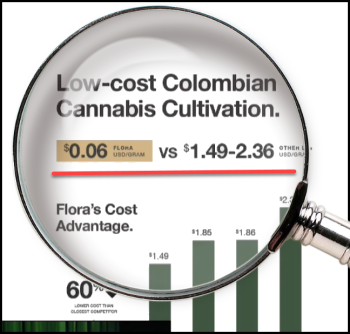DEA Delays Cannabis hearing till 2025

For the past few months, cannabis advocates have been perched on the edges of their seats like cats watching a laser pointer, following every twist and turn of the great rescheduling saga. Ever since President Biden sparked this joint of hope, suggesting that cannabis could be moved from Schedule I to Schedule III, we've been waiting to see if the DEA would finally admit what we've known all along – that cannabis isn't as dangerous as heroin.
But just as we thought we might get some clarity before the 2024 election circus kicks into high gear, the DEA pulled what I like to call a "classic prohibitionist move." A judge recently announced that the hearings won't happen until 2025, leaving advocates frustrated and industry players wondering if this is just another delay tactic in the long game of "hurry up and wait" that we've become all too familiar with.
Now, I've been covering cannabis policy long enough to smell political theater when I see it, and this latest development has got my skepticism sensors tingling. While some view rescheduling as a step forward, others (myself included) have questioned whether Schedule III is just Big Pharma's backup plan – a way to maintain control while appearing progressive.
In this article, we're going to dive deep into why the DEA is dragging its feet, what this delay really means for the cannabis industry, and why true reform might need to come from the halls of Congress rather than the offices of federal agencies. Buckle up, folks – we're about to get real about the future of cannabis reform in America.
The Latest in DEA Shenanigans
Just when we thought the DEA might finally be ready to have an adult conversation about cannabis, they've pulled another classic move from the prohibitionist playbook. Administrative Law Judge Teresa Wallbaum recently announced that the hearing on cannabis rescheduling will be pushed to January 2025, citing the need for "additional time to prepare for this complex proceeding."
Let's be real here – this delay isn't about preparation. It's about waiting to see who they'll be working with after the election. And given Trump's recent victory, coupled with his surprisingly progressive stance on cannabis reform, the landscape is about to get interesting. Unlike the Biden administration's tepid approach to reform, Trump has voiced support for both rescheduling and broader cannabis reforms. However, he’s also a wild card and could do absolutely nothing. It’s still too early to tell.
But here's where I'm going to ruffle some feathers – this whole rescheduling circus might just be political theater. Think about it: the Biden administration had four years to implement meaningful cannabis reform. What did we get? A lot of promises, some nice-sounding rhetoric about rescheduling, and precisely zero actual changes. It's the kind of empty promises we've come to expect from career politicians trying to maintain their grip on power while appearing "progressive."
The American people aren't stupid. They saw through this charade, which partly explains why they voted for Trump. Say what you will about the man, he is a big disruptor and there are more moderate voices on his team this time around. We’ll have to see who else he picks and hope that some lobbyist doesn’t sneak in there – they probably will – but we’ll have to see.
According to court documents, the delay is necessary because "the parties need additional time to identify and prepare expert witnesses, and to review the extensive documentary evidence that will be presented at the hearing." But let's call this what it is – bureaucratic tap dancing. The DEA is waiting to see which way the political winds blow before making any significant moves.
Here's where I might surprise you – this delay might actually be a blessing in disguise for cannabis advocates. Why? Because Schedule III was never the answer we were looking for anyway. As I've written before, rescheduling to Schedule III is essentially Big Pharma's backup plan, a way to maintain control over cannabis while appearing to support reform.
My gut tells me – and my gut's been right more often than not in this industry – that real cannabis reform isn't going to come through rescheduling. It's going to come through Congress, and potentially with support from the incoming administration. The people have spoken loudly: they want real reform, not more empty promises and half-measures.
The writing's on the wall, folks. The old guard's strategy of dangling the rescheduling carrot while maintaining the status quo isn't working anymore. Whether through Trump's promised reforms or congressional action, change is coming. And maybe, just maybe, this DEA delay is the death rattle of the rescheduling red herring we never needed in the first place.
Why I stopped predicting…
You know, I used to be that guy. The one who'd confidently declare, "Within five years, cannabis will be legal nationwide!" I'd break down the trends, cite the polling data, and explain why legalization was inevitable. And you know what? I kept being wrong. Not about the direction – cannabis reform has steadily marched forward – but about the timeline and the path it would take.
Looking back, I nailed quite a few predictions. I saw the CBD boom coming, correctly anticipated the rise of Delta-8 THC in prohibition states, and forecasted the eventual corporate takeover of many pioneer cannabis markets. But these days? Making predictions about cannabis reform feels about as reliable as using a Magic 8-Ball to plan your retirement.
The political landscape has become more unpredictable than a first-timer's reaction to a high-THC edible. We've got Trump back in office – a man who, despite his previous opposition to cannabis, has recently shown support for reform. Could he shock us all and push through a simple, straightforward legalization plan just to stick it to the establishment? It's entirely possible. Could he also do absolutely nothing and let the status quo reign? Equally possible.
And that's just one variable in an increasingly complex equation. We've got Big Pharma pulling strings behind the scenes, state markets evolving at different rates, and banking reform perpetually stuck in congressional limbo. Not to mention the international scene, where some countries are embracing legalization while others double down on prohibition.
Here's what I do know: Schedule III, even if it happens, isn't the endgame. It's like trying to fix a broken leg with a Band-Aid – it might look like you're doing something, but it doesn't address the underlying problem. The moment it passes (if it passes), it'll be tied up in legal challenges faster than you can say "interstate commerce." Why? Because without congressional action, we're still stuck in this weird legal twilight zone where state and federal laws contradict each other.
So I've stopped making predictions about when or how cannabis reform will happen. Instead, I focus on analyzing the facts in front of us and calling out the bullshit when I see it. Because at the end of the day, that's more valuable than crystal ball gazing.
The only thing I'm certain about is that change is coming. Whether it's through congressional action, executive orders, or some yet-unknown path, cannabis prohibition will end. I just won't tell you when anymore. I've learned my lesson about making promises I can't keep – unlike some politicians I could name.
INSPIRATION: https://www.marijuanamoment.net/dea-marijuana-
rescheduling-hearing-delayed-until-2025-agency-judge-rules/
THE DEA DELAYS AGAIN, READ MORE...
THE DEA IS NOT TELLING THE TRUTH ON CANNABIS SCHEDULES!







